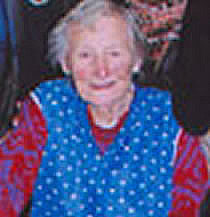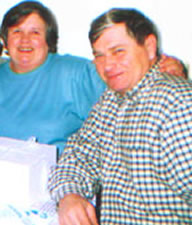CAREGIVERS WITHOUT BORDERS
....For most of the past 10 years, Jaroslav Sedlacek, 61, has spent virtually all his weekends caring for his mother, Anna Sedlackova who lives in the house in which she was born 86 years ago.
“I’ve been independent all my life,” Anna says, “and I like to live as independently as possible for as long as I can.” Family caregivers like Jaroslav in Czech Republic are no different from millions of caregivers in United States. They all are confronted by the same challenges of responding to the needs, preferences, and lifestyles of the largest population of older adults in human history. Most family caregivers view caring for older parents as their responsibility and even their Family caregivers are the first line of support in overseeing the health and personal concerns of the elderly, and without their support, the cost of health care would have been unaffordable for vast majority of the older people around the globe. However, little consideration has been given by government, business, or individuals to support family caregivers despite their significant role in strengthening families with their compassionate and loving scarifies. Family caregivers require support from health and social services in order to have a meaningful quality of life that balances their caring for another with their need for self-care. They need choices and voices to enhance their ability to care, as well recognition and respect for their contribution to their societies. The time is right for global caregiver advocacy and activism. Former First Lady Rosalynn Carter has said that “there are four types of people in the world: Those who have been caregivers, those who currently are caregivers, those who will be caregivers, and those who will need caregivers.” Caregiving impacts all of us, and we all need to improve the quality of life of family caregivers by recognizing and supporting their efforts. Being a caregiver is not easy, and those who do it are special.
|
|
TEL- 619-427-4111 Email - Health@infooption.com Salud+HealthInfo is for information and educational purposes only. You should not rely on this information as a substitute for personal medical attention, diagnosis or hands-on treatment. If you are concerned abut your health or that of a child, please consult your family's physician or health provider immediately and do not try to diagnose yourself. Copyright © 2001-2009 Info Option Network |
|
Bienvenido a la primer revista dedicada al cuidado de la salud
 info
info
The first, the best & the only English & Spanish Magazine in San Diego, California
|
|
|
|
|
|
|
|
|
|
What Family Caregivers |
|
|
|
How to be an effective caregiver by the American Cancer Society |
|
|
|
|
|
|
|
|
 Anna is from Czech Republic and she lives alone in a small town called Ujezd. The town is about 25 miles away from Jaroslav’s home, and Jaroslav sometimes has to drive three to four times a week to care for his mother. It would have been more convenient for Jaroslav to place his mother in the long term care facility that he manages himself, but Anna wants to remain home and enjoy the activities that she normally does every day.
Anna is from Czech Republic and she lives alone in a small town called Ujezd. The town is about 25 miles away from Jaroslav’s home, and Jaroslav sometimes has to drive three to four times a week to care for his mother. It would have been more convenient for Jaroslav to place his mother in the long term care facility that he manages himself, but Anna wants to remain home and enjoy the activities that she normally does every day. privilege. They often take pride in being able to offer their loved ones a healthy environment and good living conditions. However, family caregiving has become more than an act of love and familial responsibility. It has become an essential element of the health and long-term care system in all parts of the world.
privilege. They often take pride in being able to offer their loved ones a healthy environment and good living conditions. However, family caregiving has become more than an act of love and familial responsibility. It has become an essential element of the health and long-term care system in all parts of the world.